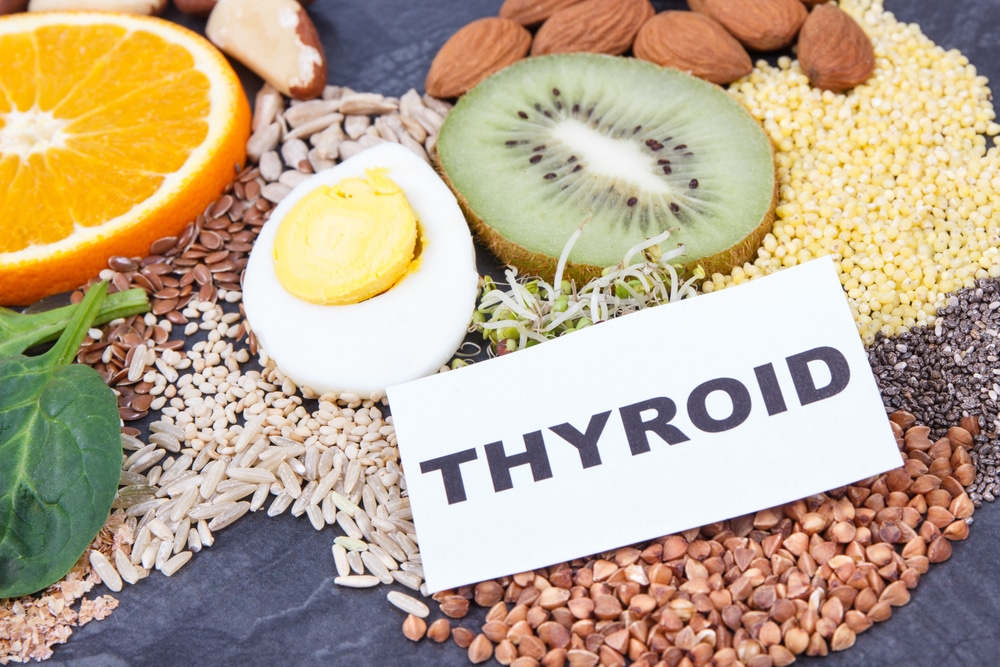Nourish Your Thyroid: Your Body’s Mastermind Unveiled

Hypothyroidism, characterized by an underactive thyroid gland, can have far-reaching effects on overall health. The thyroid, often likened to the body’s mastermind, governs energy use, metabolism, cardiac function, and more. This comprehensive guide explores the intricate relationship between nutrition and hypothyroidism, backed by scientific evidence, to empower individuals dealing with this condition.
What is Hypothyroid?
Understanding hypothyroidism is crucial for effective management. The thyroid gland, resembling a butterfly at the base of the neck, produces hormones (T3 and T4) that regulate metabolism, heart function, and even mood. Symptoms such as weight gain, fatigue, and sensitivity to cold signal a potential issue. A simple blood test can confirm hypothyroidism, prompting the need for proactive management.
The Nutrient Connection:
Proper thyroid function hinges on a delicate balance of nutrients. Deficiencies in essential vitamins and minerals can hinder the thyroid’s performance. This section delves into key nutrients and their impact on hypothyroidism.
Selenium:
The thyroid contains high amounts of selenium, and a deficiency leads to thyroid dysfunction. Selenium is essential for thyroid hormone metabolism and act as a crucial antioxidant. Maintaining optimal levels through diet or supplementation is vital for overall thyroid health.
Selenium is found in meat, turkey, chicken, Salmon, tuna, mushrooms, beans and Brazil nuts.
Iodine:
Crucial for thyroid hormone synthesis, iodine deficiency is a leading cause of preventable brain damage. Triiodothyronine (T3) and thyroxine (T4) are thyroid hormones that contain iodine. Without sufficient intake of iodine, your body will not create thyroid hormones.
Dietary sources like seafood, salmon, eggs, cod and iodized salt can significantly improve thyroid function.
Zinc:
Zinc, a pivotal mineral, intricately regulates thyroid hormone metabolism. An optimal concentration of zinc is essential for adequate levels of T3, T4, and thyroid-stimulating hormone (TSH)
Food Sources like oysters, beef, chicken, lamb, lentils, chickpeas and fortified cereals ensure dietary diversity, supporting enzyme activity and hormone synthesis.
Iron:
Iron, when combined with iodine, enhances thyroid function. According to studies, treating a person’s iron levels may be all that is needed to reverse a thyroid condition.
Rich food sources include: Organ meats, turkey, and dark leafy greens provide a triple threat of iron,
Vitamin A:
Vitamin A plays a pivotal role in modulating thyroid homeostasis. Vitamin A activates thyroid hormone receptors and reduce inflammatory response.
Rich food sources include red and yellow vegetables, fruits, dairy foods (Avoid milk), and certain fishes, contributing to overall thyroid function.
Omega-3:
Recognized for anti-inflammatory properties, Omega-3s mitigate inflammation affecting the thyroid in hypothyroidism.
Foods rich in omega-3s include Fatty fish and plant-based sources like flax seeds and walnuts provide crucial support.
Vitamin D
Scientific studies highlight the positive impact of vitamin D supplementation on hypothyroid patients, emphasizing the need to address the widespread vitamin D deficiency affecting millions globally.
Foods rich in Vitamin D are Oily fish, egg yolks, and sunlight are excellent sources.
Beyond Nutrition: Lifestyle Choices:
In addition to nutrition, lifestyle choices significantly impact thyroid health. Regular exercise, stress management, and sufficient sleep contribute to overall well-being. Exercise, in particular, serves as an outlet for stress, promoting a healthier thyroid.
Conclusion:
Managing hypothyroidism extends beyond medication, emphasizing the importance of knowledge and lifestyle choices. By embracing a nutrient-rich diet tailored to support the thyroid, individuals can take proactive steps towards their health. It’s crucial to recognize the uniqueness of individual health conditions, and consulting healthcare providers and nutritionists is paramount in creating a personalized plan. Empower yourself with informed choices, and embark on a journey to nourish your thyroid for overall well-being.
Share this article
Priyanka Bhadauriya
With over 8 years of expertise in nutrition and dietetics, Priyanka's career spans various healthcare settings. Her postgraduate degree in Dietetics and Public Health Nutrition underlines her profound understanding of nutrition's scientific intricacies. Additionally, as a diabetes educator, she provides crucial support to individuals managing diabetes, enhancing their well-being. Priyanka's comprehensive approach to nutrition makes a positive impact on public health.













